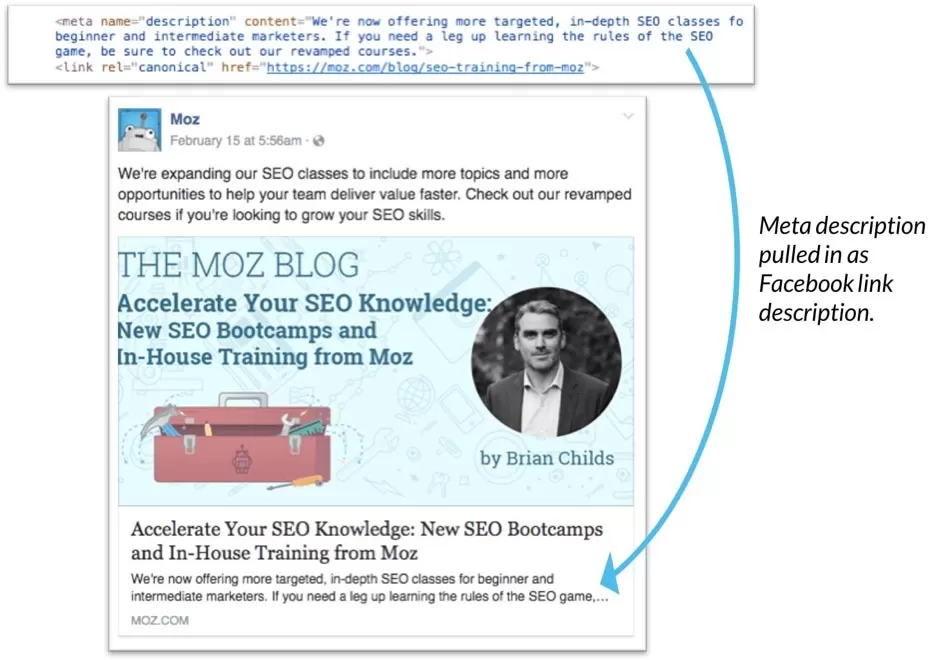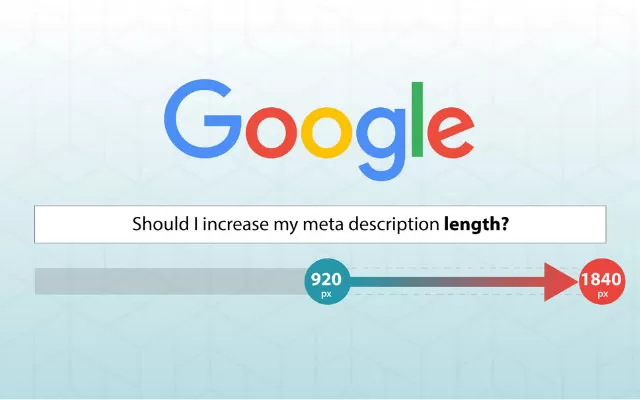A meta description is an HTML attribute that provides a short summary of a web page. Search engines like Google often display meta descriptions in search results, typically up to 160 characters in length, which can significantly impact user click-through rates.
Example:

Code example
<Head>
<meta name=”description” content=”Stories set on the road have captured people’s interest throughout history. We have gathered the top 25 travel movies that ignite the sense of adventure within us for you.” />
</ Head>
Optimal length
Meta descriptions can be of any length, but Google truncates snippets to 155-160 characters. It is best to keep meta descriptions long enough to be descriptive enough, so we recommend descriptions between 50-160 characters. Remember that the “optimal” length may vary depending on the situation, and your primary goal should be to provide value and encourage clicks.
The most suitable format
Meta description tags, while not directly influencing search engine rankings, are crucial for obtaining user clicks from SERPs. These short paragraphs allow a webmaster to “advertise” content to searchers and give searchers a chance to decide if the content is relevant to their query and contains the information they are looking for.
A page’s meta description should intelligently (in a natural, effective, non-spammy way) use the keywords the page is targeting, but also create an attractive description that a researcher would want to click on. It should be directly related to the page it describes and unique compared to the descriptions of other pages.
What is a Google ranking factor?
In September 2009, Google announced that neither meta descriptions nor meta keywords affect its web search ranking algorithms.
However, meta descriptions can influence a page’s CTR (click-through rate) on Google, which can positively impact the page’s ranking ability.
Therefore, it is important to put some effort into meta descriptions, among other factors.
SEO practices
Write Compelling Ad Copy!
The meta description tag fulfills the function of the ad text. It attracts readers to a website from the SERP, making it a highly visible and important part of search marketing. Creating a readable, engaging description using important keywords can increase the click-through rate of a particular web page. To maximize click-through rates on search engine results pages, it is important to note that Google and other search engines bold keywords in the description when they match search queries. This bold text can capture the attention of searchers, so you should align your descriptions as closely as possible with search terms.

Avoid Repeated Meta Description Tags!
As with title tags, it is important for meta descriptions on each page to be unique.
One way to combat duplicate meta descriptions is to implement a dynamic and programmatic way of generating unique meta descriptions for automated pages. If possible, using a unique description for each page is preferable to writing a generic one.
Quotation marks are not included.
If quotation marks are used at any time in a meta description’s HTML, Google will truncate the description when it appears in a SERP. The best way to prevent this from happening is to remove all non-alphanumeric characters from meta descriptions. If quotation marks are important in your meta descriptions, you can use HTML entities instead of double quotation marks to avoid truncation.
Sometimes, it’s better not to write meta descriptions.
If a page targets three highly searched terms or phrases, write your own meta description that includes those terms and targets users performing search queries.
If the page is targeting long-tail traffic (three or more keywords), it is sometimes wiser to let the engines fill in the meta description themselves. The reason is simple: When search engines generate a meta description, they display the keywords and surrounding phrases that the user is searching for.
Note that social networking sites like Facebook often use a page’s meta description tag as the description that appears when shared on their site. Without a meta description tag, social networking sites can use the first text they can find. Depending on the initial text on your page, this may not create a good user experience for people encountering your content through social sharing.

**Note: Search Engines Don't Always Use Your Meta Description**
In some cases, search engines may override the meta description that a webmaster has specified in the HTML of a page. Exactly when this will happen is unpredictable, but it usually occurs when Google doesn’t think the current meta description adequately answers a user’s query and describes a snippet from its target page that better matches a person’s query.

